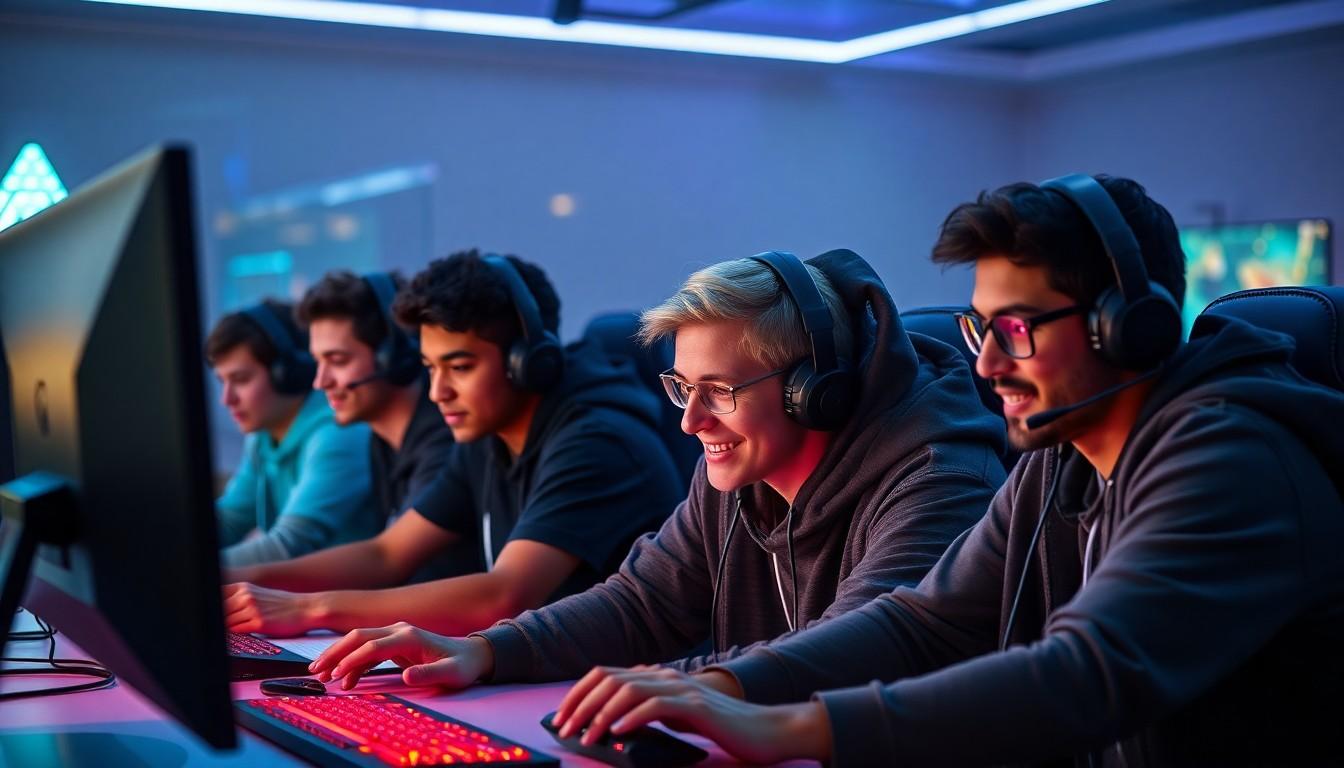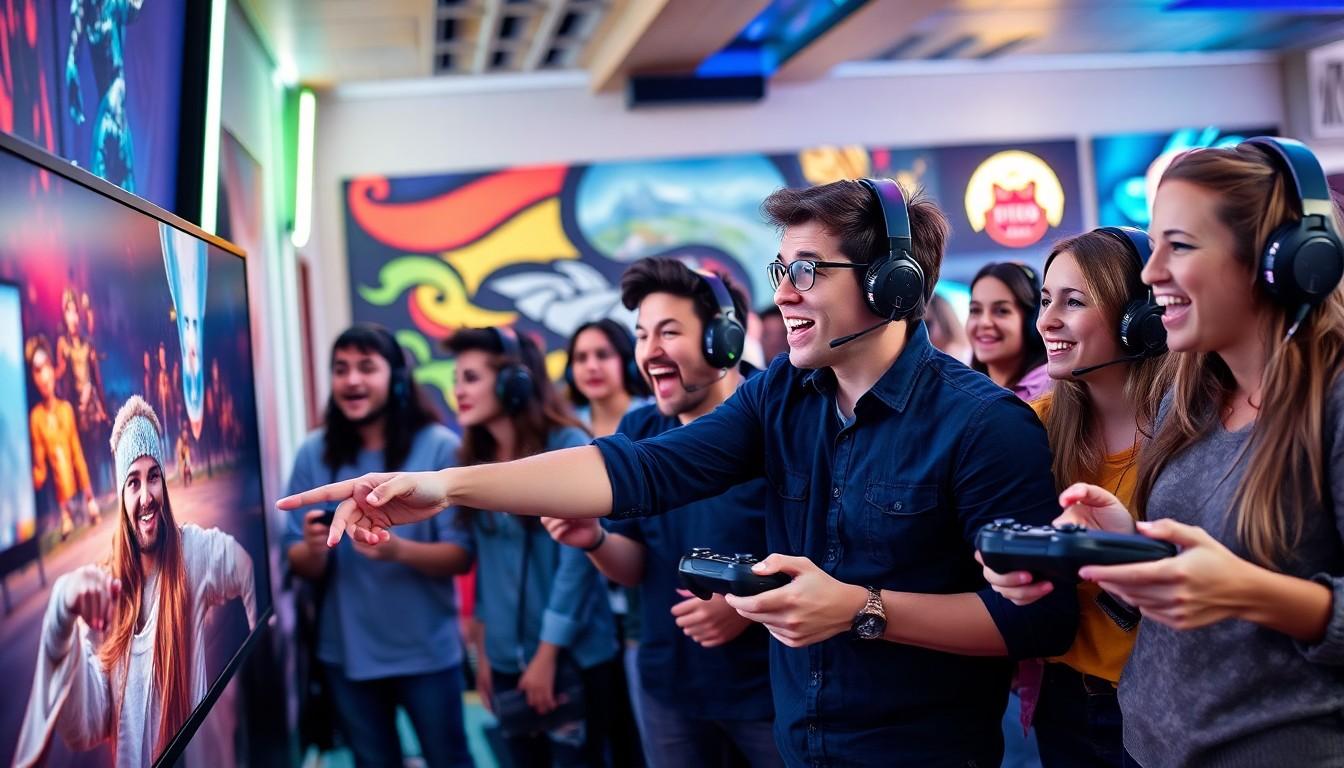In the vibrant world of gaming, challenges aren’t just obstacles; they’re the spice that keeps players coming back for more. Whether it’s conquering a notoriously difficult boss or racing against the clock in a nail-biting speedrun, these challenges transform casual play into epic adventures. It’s like a rollercoaster ride where every twist and turn pushes gamers to their limits—and sometimes their sanity!
Gaming Challenges
Gaming challenges serve as pivotal components that shape the overall gaming landscape. They motivate players to push through difficult levels or achieve high scores. Many gamers seek these obstacles for the adrenaline rush that comes with overcoming them.
Types of gaming challenges vary across genres and platforms. Competitive games often feature timed events or leaderboard rankings, while role-playing games include quests that test skill and strategy. Cooperative games might focus on team achievements, requiring collaboration to reach shared goals.
The impact of challenges extends beyond mere entertainment. Studies show that engaging with challenges can improve cognitive abilities, enhancing problem-solving skills and strategic thinking. Players often experience a sense of accomplishment and increased satisfaction upon completing tough obstacles.
Platforms like Steam and Twitch document how gaming challenges contribute to community engagement. Players share experiences and strategies, creating a shared culture that celebrates achievements. This sense of community fosters motivation and encourages players to take on more significant challenges.
Balancing gaming challenges is essential for maintaining player interest. Developers aim for a mix of easy and hard tasks to cater to different skill levels. This approach ensures that players remain engaged, regardless of their proficiency.
Gaming challenges are a core aspect of the gaming experience. They enhance engagement, promote cognitive growth, and foster community connections. As gaming continues to evolve, challenges will remain central to attracting and retaining players.
Types Of Gaming Challenges

Gaming challenges come in various forms, enhancing the overall gaming experience. Players engage with competitive challenges, cooperative challenges, and solo challenges.
Competitive Challenges
Competitive challenges foster rivalry among players. These events include timed trials and leaderboard rankings that encourage skill-based competition. Games like “Fortnite” and “Overwatch” showcase intense cooperative battles while striving for high placements. Achieving top scores brings adrenaline highs and prestige, motivating players to refine strategies. These challenges serve as benchmarks, pushing them to outperform others in real-time settings.
Cooperative Challenges
Cooperative challenges emphasize teamwork and collaboration. Players unite to tackle missions that require collective effort for success. Examples include raid bosses in “World of Warcraft” and escape rooms in “Phasmophobia.” These experiences build camaraderie as players strategize together, coordinating their skills to overcome obstacles. Achieving shared goals leaves participants with a sense of accomplishment, strengthening community bonds.
Solo Challenges
Solo challenges put individual skills to the test. Players face obstacles that require self-reliance and strategic thinking. Titles like “Dark Souls” and “Celeste” exemplify this gameplay style, pushing players to conquer intricate levels. Overcoming these challenges fosters personal growth, as players learn from failure and celebrate triumphs. Engaging in solo challenges cultivates independence and resilience, enriching the gaming experience.
Benefits Of Gaming Challenges
Gaming challenges provide numerous benefits that enhance the player experience. They contribute significantly to skill development and community building.
Skill Development
Skill development is a primary benefit of gaming challenges. Players often encounter complex scenarios that require critical thinking and problem-solving. Engaging with these challenges sharpens cognitive abilities, fostering strategic planning and quick decision-making. Titles like “Dark Souls” and “Celeste” push individuals to master intricate gameplay mechanics. Players go through a learning curve that enhances overall gameplay proficiency. Over time, this continuous practice leads to improved reflexes and hand-eye coordination. Achieving higher levels enhances their ability to tackle future challenges.
Community Building
Community building emerges as another crucial advantage of gaming challenges. Players often come together to share strategies and experiences, fostering social connections. Platforms like Twitch and forums highlight teamwork and collaboration in overcoming obstacles. Many gaming communities organize events focused on specific challenges, strengthening bonds between players. Cooperation often becomes essential in cooperative games, where completing missions requires communication. Friendships built during these experiences can last beyond the game itself. This sense of belonging enhances overall enjoyment and encourages players to return to the game.
Common Gaming Challenges
Gaming challenges present players with various obstacles, each testing different skills. They often create engaging experiences and increase motivation.
Time Management Challenges
Time management challenges require players to strategize effectively. Within competitive games, timed events demand quick thinking and fast decision-making. Quests in role-playing games pose deadlines, pushing players to complete objectives within specific timeframes. Players learn to prioritize tasks and manage resources efficiently. These challenges feature in games like “Overcooked,” where teams race against the clock to serve meals, and “Dead Rising,” which imposes time limits for missions. As a result, mastering time management enhances both gameplay and real-world skills.
Technical Challenges
Technical challenges involve overcoming complex mechanics and bugs during gameplay. Players often face issues like connectivity problems, frame rate drops, or hardware limitations. Titles like “Cyberpunk 2077” and “Call of Duty” illustrate how technical challenges can hinder player experiences. Anticipating updates and patches plays a crucial role in addressing these issues. Navigating technical difficulties encourages players to develop troubleshooting skills. As technical knowledge increases, so does the overall enjoyment of gaming, allowing players to adapt and thrive in various scenarios.
Gaming challenges are essential to the overall experience players encounter. They not only elevate engagement but also encourage personal growth and social interaction. By pushing players to their limits they create memorable moments that keep gamers coming back for more.
As the gaming landscape continues to evolve developers will undoubtedly find new ways to incorporate challenges that balance difficulty and enjoyment. This ongoing evolution ensures that gaming remains a dynamic and exciting endeavor for players of all skill levels. Ultimately the thrill of overcoming obstacles is what makes gaming a truly rewarding pursuit.

